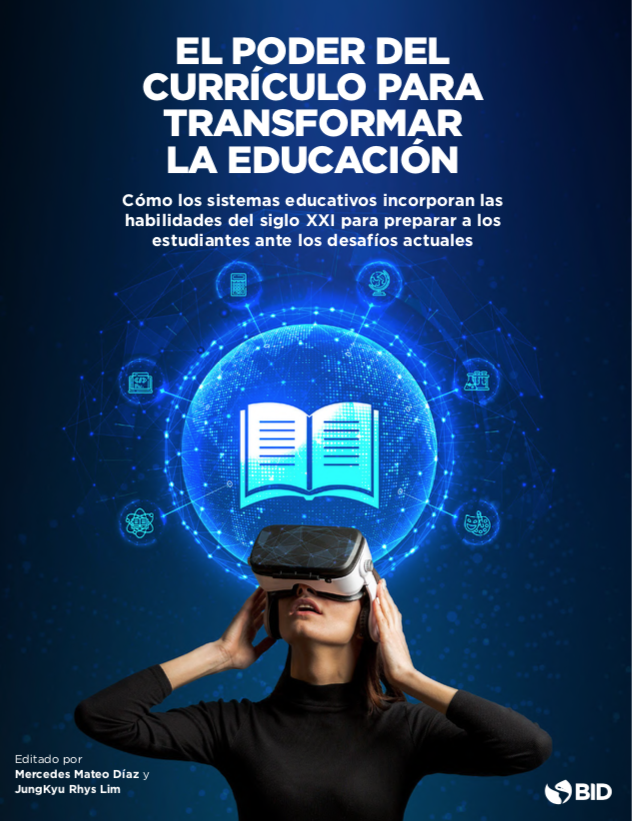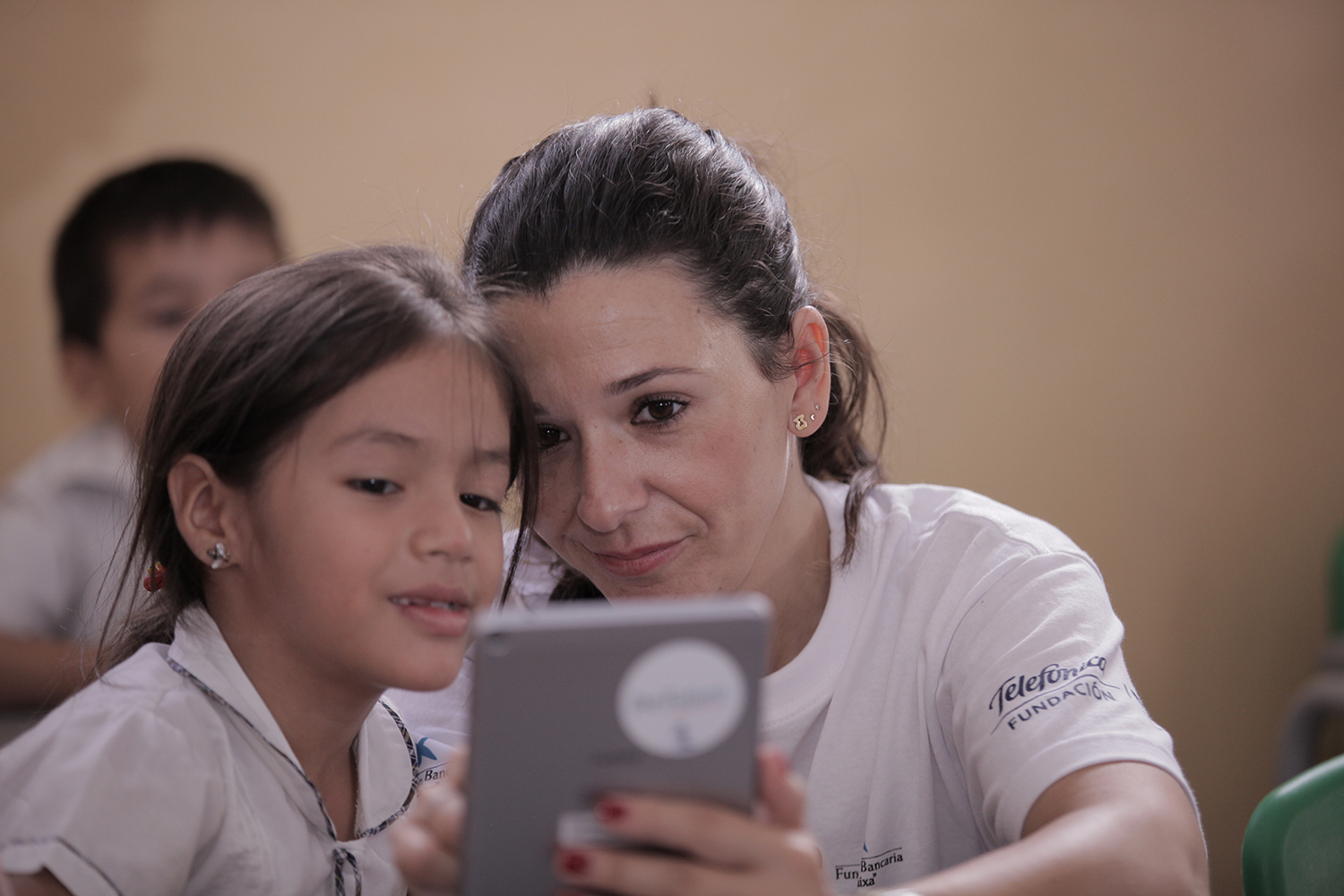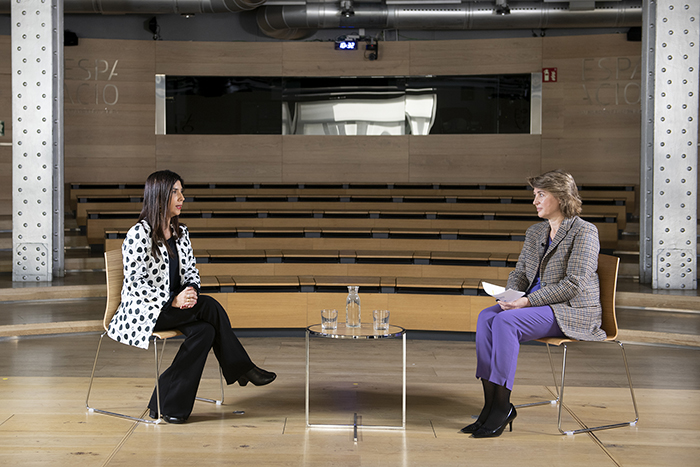What are 21st century skills and why are they important?
The world is changing at breakneck speed: every day, the news on the TV bulletins tells us stories that, just 10 years ago, seemed like something out of a fantasy film: artificial intelligence, climate disasters, global epidemics, massive migratory flows… People increasingly need skills to help them deal with unpredictability and change.
In addition to this (and somewhat as a consequence), the nature of work is changing: many jobs will be replaced by machines and artificial intelligence and new ones will emerge. Skills that serve to enhance human interaction (e.g. empathy), to connect ideas, to handle unpredictable situations, to use and understand human emotions to solve problems and conflicts, and to generate new ideas will be less likely to be replaced by robots and artificial intelligence.
21st century skills are a set of foundational and transversal skills that include digital skills (e.g. computational thinking); advanced cognitive skills (e.g. critical thinking or problem-solving); skills related to executive function (e.g. self-regulation and metacognition, which have a dynamic relationship with cognitive skills) and social-emotional skills (e.g. self-esteem, perseverance or empathy).
Educational curricula are the main instruments used by societies to translate their human capital needs into specific content, competences and skills. It is therefore imperative to integrate these new needs into the curricula of our education systems. How has this been done in those countries where they have been successful? What lessons can be drawn from these countries for application in Latin American and Caribbean countries? The report The Power of the Curriculum to Transform Education published by the Inter-American Development Bank, examines this issue and draws lessons learned and recommendations for policymakers. In this article we summarise some of their main conclusions.
Implementing 21st century skills in the curriculum: keys to success
In order to understand how to make a successful curriculum reform that aims to introduce 21st century competences, the comparative approach can be of great help, as it allows for the incorporation of best practices and lessons learned by different education systems. Thus, the report develops an analysis of how 20 OECD countries with medium-high human development indices have done it, in order to be able to extract some keys to success from this analysis. The following is a summary of some of the most relevant ones:
- To provide a good basis for teaching competences within the country’s legislative framework. This basis should incorporate a vision of education centred on competences and skills, and an initiative to make them coherent with the proposals formulated by the different social agents and approved through dialogue mechanisms.
- Develop a global competences framework for their teaching. Such a framework must transcend the school environment (extending to life beyond school) and include personal standards that accompany students’ training and professional development.
- Coordinate the set of professional competences and skills that teachers must master with a clear description of the learner’s graduate profile in terms of personal, citizenship and, in some cases, global citizenship, which is based on values, principles and traditions that make them unique.
- Establish collaborative dynamics between teachers, which encourage networking and didactic co-design and facilitate successful initiatives in educational innovation, prioritising the development of skills.
- Paying attention to accompanying teachers and their professional development at each stage of their career, with personalised professional development strategies such as mentoring, coaching... Offering concrete guidelines to teachers to train skills with their future students.
- Ensure that the distribution of money and resources is balanced by an awareness of the need to reduce equity gaps in society. Countries that distribute money with a focus on narrowing the social divide and reducing geopolitical differences achieve better quality of education services in terms of global and 21st century skills.
21st century skills in Latin American school systems
The IDB report also analyses the state of play regarding the penetration of 21st century skills in 21st century education systems. To this end, they carry out a comparative study of 18 countries in the region, through the study of their educational legislation, current curricular documents and research studies and reports. What conclusions can be drawn from this study?
- 21st century skills are very difficult to identify in curriculum policies and even more so in applied curricula.
- A profound change in the pedagogical approach is needed. To have an impact on teaching practices, curricular changes require a sophisticated ability to interact with the beliefs and skills of the education system.
- Strong curriculum management capacity needs to be combined with flexible governance. Curriculum change is most feasible in countries where external demands (social, cultural and labour) are combined with ample reflection and capacity for pedagogical and curricular action within the education system and with strong capacities for curriculum governance, including flexible approaches to incorporate changes and revisions.
- The use of curriculum regulation channels. Government can achieve greater regulation in countries with a tradition of centralised intervention and the use of key channels of curriculum regulation, such as curriculum regulations, mass distribution of textbooks, teacher training programmes or standardised assessments.
- Digital, socio-emotional and citizenship skills are the easiest to integrate. The 21st century competences that are easiest to identify and have the most significant impact on recent curriculum reforms are digital, socio-emotional and citizenship training skills.
- Informal or private programmes can be a gateway to the practices, beliefs and habits of the education system and, although they have some limitations in scope and duration, they can initiate curricular reform.
Finally, based on these preliminary findings, what are the report’s recommendations for education policymakers in the region?
- Strengthen state capacities for curriculum development through a technical, non-political ministerial agency. Curriculum agencies in ministries of education are crucial for setting up reform processes that can be sustained over time. This is why it is important to train and select curricular specialists, from meritocratic and non-political backgrounds, who can integrate stable teams, who can go beyond political “offices”.
- Encourage a culture of curriculum reflection within the education system. Generate spaces for debate, research and reflection on curricular transformations.
- Place HS21 at the centre of curriculum policies, combining a top-down and bottom-up approach. It is necessary to recognise, on the one hand, the key role of teachers as agents of curriculum change and, on the other hand, the need for institutional and programmatic curriculum planning to guide, support and enable curriculum change at the classroom level.
- Clearly define the interrelationship between 21st century skills and existing curriculum designs. It is key to create hinge mechanisms that integrate these skills in each curricular area in a cross-cutting manner. Some HS21 can be taught in a specific way, even with an allocated time slot and specialised teachers (in particular in the case of digital or citizenship skills, as we have seen in this document). But most are integrated into the curriculum and make sense in combination with more “classical” disciplinary content. This process requires a gradual incorporation into the various policy instruments (curriculum designs, textbooks, training, assessments, etc.). The clearer the way these skills are taught and the closer they are to teaching practices, the more feasible the changes will be. For this to be possible, medium-term paths that are sustained over time must be mapped out.
- Evaluate achievements and lessons from specific programmes that incorporate 21st century skills in parallel to the curriculum, which sometimes allow for more speed and depth in testing curriculum change processes.
The world is changing and so are our training needs. The skills gap between what society needs and what education systems provide has been widening steadily for years. We need to update education curricula to introduce the new competences and skills that today’s and tomorrow’s citizens and societies need to thrive.
REFERENCES
Mateo, M. and Lim, J. R. Eds. (2022). The power of curriculum to transform education. Inter-American Development Bank.






